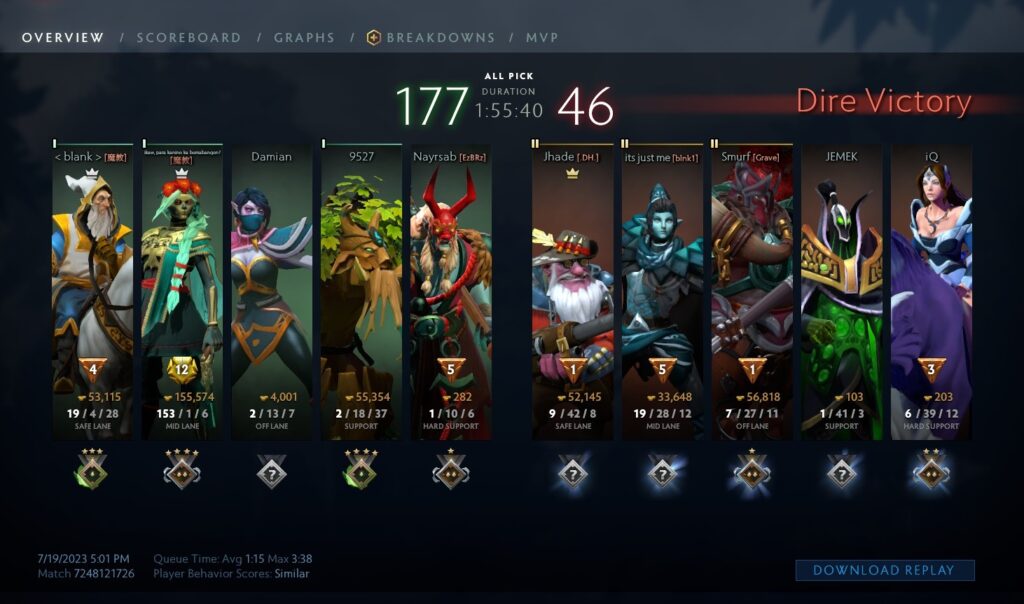The Dota 2 gaming community is a vibrant and diverse ecosystem comprising players of varying skill levels, motivations, and aspirations. Within this community, the prevalence of MMR boosting services has raised concerns regarding fairness, integrity, and the overall dynamics of competitive gameplay. This case study delves into the impact of Dota 2 mmr boost, exploring the social, ethical, and communal ramifications of such practices.
Research Objectives
Community Perceptions: Investigating how the Dota 2 community perceives MMR boosting, including attitudes towards players who engage in boosting services and the impact on the overall gaming experience.
Fair Play and Integrity: Examining the implications of MMR boosting on the principles of fair play and integrity within the Dota 2 community, and how it influences the competitive landscape.
Community Cohesion: Analyzing the effect of MMR boosting on community cohesion, player interactions, and the sense of camaraderie among Dota 2 enthusiasts.
Skill Discrepancies: Exploring how artificially inflated MMR through boosting services contribute to skill discrepancies in matches, affecting the overall balance and competitiveness within the community.
Stakeholders Involved

- Players: The core members of the Dota 2 community who are directly impacted by the presence of MMR boosting services, either as participants or as observers.
- Community Moderators: Individuals responsible for overseeing and maintaining the community standards and ensuring that ethical guidelines are upheld, particularly in relation to fair play and sportsmanship.
- Game Developers: The creators of Dota 2 who play a crucial role in shaping the policies, regulations, and mechanisms that govern player behavior and interactions within the game.
- Esports Organizations: Professional gaming entities that are interconnected with the Dota 2 community and may be affected by the prevalence of MMR boosting in competitive environments.
Findings and Recommendations
Community Awareness Campaigns: Implementing educational initiatives to raise awareness about the negative impact of MMR boosting on the community and promote fair and ethical gameplay practices.
Regulatory Measures: Enforcing stricter regulations and penalties against players who engage in MMR boosting to deter such practices and uphold the integrity of competitive gaming.
Skill Development Programs: Introducing skill development programs and resources to encourage players to improve their abilities organically and enhance the overall competitiveness within the community.
Summary
By assessing the impact of the Dota 2 MMR boost, this case study highlights the importance of maintaining fair play, integrity, and community cohesion within competitive gaming environments. Addressing the challenges posed by MMR boosting requires a collective effort from stakeholders to preserve the authenticity and spirit of Dota 2 as a competitive and inclusive gaming community.
Are you an avid player of Roblox, the popular online gaming platform? If so, you’re probably aware of the importance of Robux, the virtual currency . . .
Playing and winning several online games is really challenging, even for experienced gamers. This is mainly due to the fact that games like Warcraft are . . .






